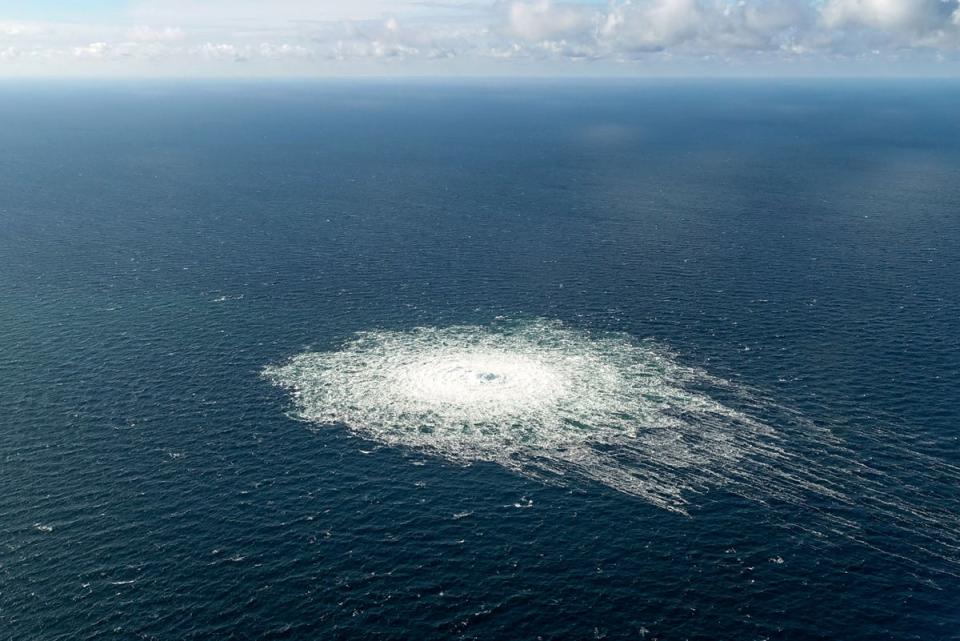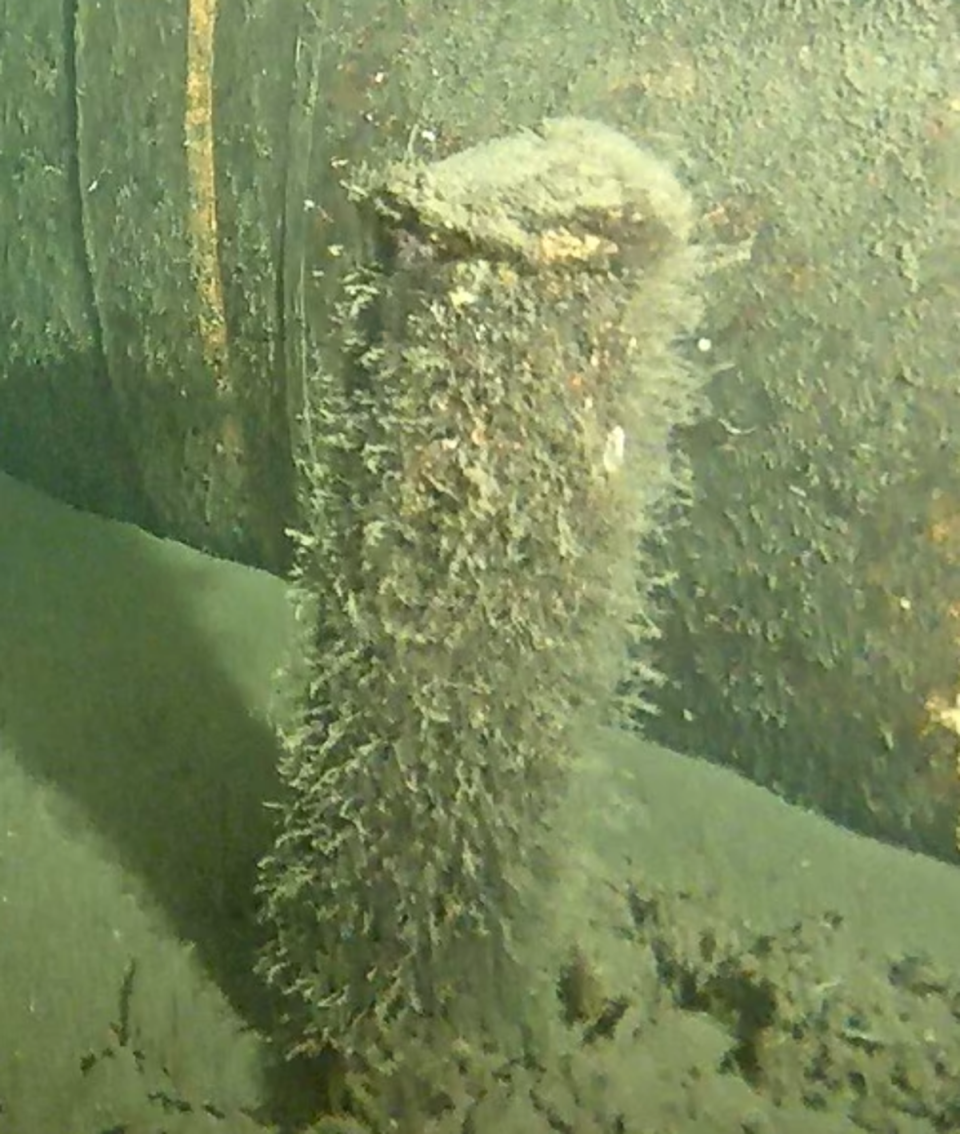Mystery object found on seabed could provide vital clue to who blew up Nord Stream pipeline
Denmark has invited the Russian-controlled operator of the Nord Stream 2 pipeline to help recover a mystery object found on the seabed near the pipeline.
It come six months after sections of the pipeline were sabotaged. Russian President Vladimir Putin said he believes the object could be a signal antenna to activate an explosive in that part of the pipeline.
German, Swedish and Danish authorities are investigating the pipeline explosion that sparked four leaks on the two Nord Stream pipelines in the Baltic Sea in September, seven months after Russia invaded Ukraine.

The mystery cylindrical object is standing near the Nord Stream 2 pipeline at the bottom of the sea.
The Danish energy agency said it is “possible” that the object is a maritime smoke buoy and that it “does not pose an immediate safety risk”.
They continued: “With a view to further clarifying the nature of the object, Danish authorities have decided to salvage the object with assistance from the Danish Defence,” and added that the agency is still waiting for a response from the pipeline’s owner before starting the recovery operation.
Investigators searched a ship suspected of having transported explosives used in the blasts in January, German prosecutors said earlier this month.

The New York Times reported that US officials had seen new intelligence indicating that a ‘pro-Ukrainian group’ was responsible for the sabotage of the pipelines, which Russian energy giant Gazprom has a majority stake in.
The Ukrainian government has denied any involvement, while the Kremlin called the New York Times report a “diversion”.
The Nord Stream 1 and 2 pipelines have long been a target of criticism by the United States and some of its allies, who warned that they posed a risk to Europe’s energy security by increasing dependence on Russian gas.
Germany halted certification of the still uncommissioned Nord Stream 2 after Russia’s invasion of Ukraine, and Moscow stopped the flow of gas in Nord Stream 1 weeks before the attack.

 Yahoo News
Yahoo News 
